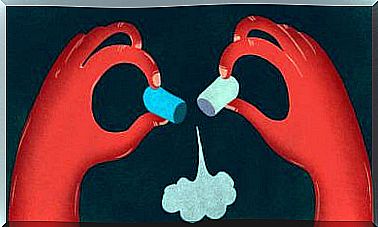Nothing You Do Will Be Okay For Many People, But What Does It Matter?

Do not do it, do not stress, do not make your existence bitter because nothing you do will be good for many people. But what does it matter? To stop worrying about what is not worth it is to gain in mental health, and it is, above all, to put an end to those ruminant thoughts that rob us of energy and tranquility.
We have to admit it, that constant dedication to others is almost a reflex action in many of us. It is like a psychic tendon that for a long time has fulfilled a very specific function in the human being: to be accepted by the group.
Because whoever thinks differently or who acts through healthy selfishness is sometimes isolated from the great herd of white sheep. And that, for many people, can be traumatic.
Adaptation and self-esteem

As ironic as it may seem, thinking about whether what we do will be right, chronifying that constant dedication to others, what it actually achieves is reducing our self-esteem and drowning our illusions. Because just as there are outright complainants, so do unscrupulous predators.
Specimens prepared almost instinctively, to take advantage of those people for whom, the word “NO” does not exist or is forbidden in their consciousness. Therefore, believe it or not, the need to adjust almost every moment to other people’s expectations is also a form of self-harm.
Little by little we enter a complex dynamic where we discover that we are being manipulated, that saying “yes” is already a reflex action impossible to control. Frustration leads to anger, anger to grief and grief to nervous depression.
Nothing is as devastating as standing up as our own enemy just for not daring to practice healthy selfishness, for always thinking if what we do will be okay or not in the eyes of others. We suggest you reflect on it.
Whatever you do, it won’t be right in the eyes of many
Falling into the obsession to accomplish everything that our partners, family or bosses expect robs us of mental strength. We lose weight in emotional and psychological resources, and we even develop a type of existential anemia where the fabric of our self-esteem is seriously affected.

The most complex part of all this is that this vital sacrifice is not always rewarded. Not everyone understands reciprocity or appreciates our efforts, but even so, we continue to invest in them. Also, this mental dedication does not know holidays or breaks at the end of the day.
The psychic overload in which the complacent person drifts intensifies with obsessive thoughts and with a rehash of internal dialogues dominated by the “if I don’t do this it is possible that …”
Albert Ellis, famous cognitive psychotherapist, reminds us that this vital suffering is not due only to those people who demand us, who demand perfection and poisoned favors. It is we who with our irrational beliefs intensify a suffering that could be avoided.
One of those irrational beliefs is to think that the approval of others validates us as people. It is possible that as children we were made to believe that way. However, growing, maturing and evolving is getting a little closer to oneself to discover that the only person we should never disappoint is us.
So, the sooner we understand that sometimes, whatever you do will not be good for many, the better. We will be able to go to bed with a clear conscience, without any weight, without anxieties. It’s a great way to invest in quality of life.
A complacent person is one of the kindest beings there is. Others know it, and often take advantage of it. This is what Richard and Rachel Heller teach us in “Healthy Selfishness: How to Take Care of Yourself Without Feeling Guilty . ” A book where they describe the mental and physical exhaustion that this type of behavioral profile usually leads to.
- The first step to stop nurturing this self-denial towards others is to meet again. There are people who have been helping, caring and pleasing for so long that they have completely forgotten what their passions, their illusions were. That which identified them.
- The second step, once we have become aware of our interests and desires, is to start practicing healthy selfishness. To do this, remember the following rule: dare to say “YES” without fear and “NO” without guilt.
At first it will cost us. Reflex acts don’t just go away. However, keep this simple advice in mind: allow a few minutes to elapse between the plaintiff’s request and your response, and see that it makes you happy.
That will be the moment when you will have stopped being a complacent.
Images courtesy of Isabelle Arsenault, Kristin Vestgard









